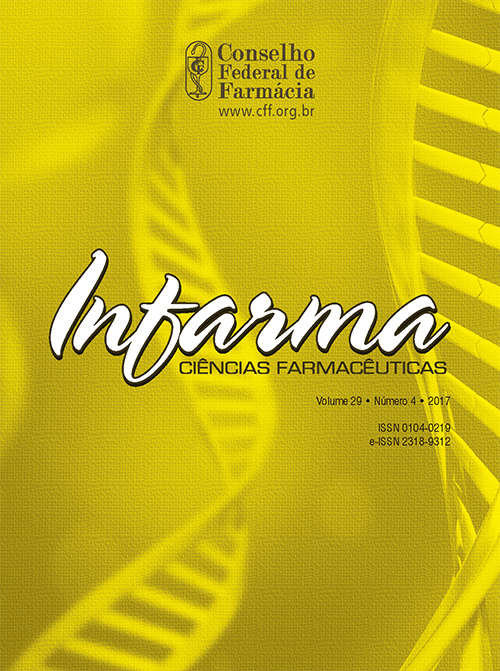Preclinical and clinical studies of selected plant species in Mercosul countries and toxicological aspects
DOI:
https://doi.org/10.14450/2318-9312.v29.e4.a2017.pp284-301Keywords:
phytotherapy, Mercosul, medicinal plantsAbstract
Medicinal plants are used to prevent and treat diseases and have been used by about 80% of the population for primary health care. The rich biodiversity of Brazil and neighboring Countries offers a unique and unparalleled potential for the discovery and development of bioactive agents. This study aimed to do a review of preclinical and clinical studies of herbal and plant species selected from Mercosul countries, and toxicological aspects. Based on previous work, the species with the highesAt number of register in Brazil (Anvisa), Aesculus hippocastanum (Horse Chestnut) and Mikania glomerata (Guaco); the most used as simple herbal medicines in Argentina Cynara scolymus L. (Artichoke) and Solanum dulcamara (Dulcamara); the sold medicinal plants in Paraguay Peumus boldus Mol. (Bilberry), and Borago officinalis (Borage); the most consumed in northern Uruguay Aloe vera (Aloe) and Passiflora edulis (Passion flower) and from Venezuela, Hedera helix (Hera) were selected for a review about pharmacology studies. Surveys on pre-clinical and clinical trials of these species were conducted on Google Scholar, PubMed and Science Direct databases in April 2016, in Portuguese and English. Then the most relevant articles were selected, using animals (rats, rabbits or mice), cellular or bacterial strains or clinical trials. About preclinical and clinical studies, Aloe and Artichoke showed the most substantial number of publications.
Downloads
Published
How to Cite
Issue
Section
License
Authors who publish in this journal agree to the following terms:
- Authors retain the copyright and grant the journal the right of first publication, with the work simultaneously licensed under the Licença Creative Commons Attribution which allows the sharing of work with acknowledgment of authorship and initial publication in this journal.
- Authors are authorized to take additional contracts separately, for non-exclusive distribution of the version of the work published in this journal (e.g. publish in institutional repository or as a book chapter), with acknowledgment of authorship and initial publication in this journal.
- Authors are allowed and encouraged to publish and distribute their work online (e.g. in institutional repositories or on their personal page) at any point before or during the editorial process, as this can generate productive changes as well as increase the impact and Citation of published work (See O Efeito do Acesso Livre ).


